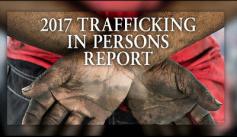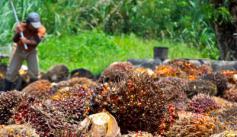Posts by Abby McGill, International Labor Rights Forum
December 23, 2017
The highs and lows of the 2017 TIP Report
July 2, 2017
Trump’s Pro-Worker Rhetoric: Reality or Ruse?
December 21, 2016
TPP Ignores Workers' Needs and Fails to Address Weaknesses from Past Trade Agreements
November 12, 2015
Obama Administration grants unwarranted TIP Upgrades
July 30, 2015
The biggest and baddest
June 26, 2015







